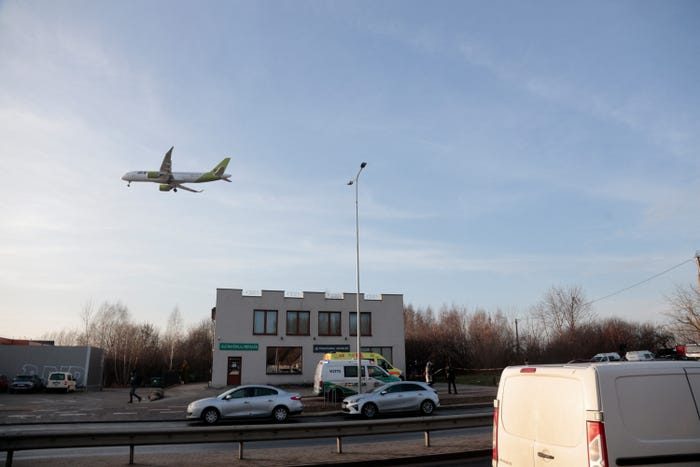BREAKING: Lithuania has closed Vilnius Airport for the third consecutive night due to balloons flying from Belarus, raising serious concerns over air safety. The airport’s operations were suspended from 9:42 p.m. to 4:30 a.m., impacting approximately 47 flights.
Officials confirmed that the balloons, likely used for smuggling cigarettes, pose a significant threat to aviation safety. Lithuanian Prime Minister Inga Ruginiene has condemned Belarus for allowing these balloons to “run wild,” highlighting the escalating tensions in the region.
The situation has intensified, with balloons detected entering Lithuanian airspace prior to the latest airport closures. Authorities reported that initial airspace restrictions were implemented due to these unidentified balloons flying towards Vilnius.
In a statement on Saturday, Ruginiene described a “large group of smuggling meteorological balloons” launched from Belarus, further indicating that another airport in Kaunas had also faced closures as a result. This follows a troubling trend, as Lithuania has dealt with such incursions for some time now.
In September 2024 alone, 250 balloons were reported to have crossed into Lithuanian territory, prompting alarm among security officials. The Prime Minister announced that Lithuania would temporarily close its borders with Belarus while its security council convenes on Monday to determine next steps.
Authorities have heightened their response, stating that more than 100 arrests have been made this year related to air smuggling, with 20 convictions already secured. The balloons, often equipped with GPS trackers and SIM cards, are believed to facilitate smuggling operations.
This week’s balloon incidents follow a series of alarming airspace violations across Europe. NATO allies, including Denmark, have reported drone incursions over their airports, heightening military and civil aviation tensions.
Concerns over air safety have reached a boiling point as Lithuania calls for tech companies and defense contractors to propose solutions for tracking and neutralizing these balloons. This urgent situation mirrors broader geopolitical tensions, with Lithuania and other Baltic states increasingly on alert due to their proximity to Belarus, a close ally of Russia.
As the situation develops, Lithuania remains vigilant, and further updates are expected following the security council meeting. The response to these balloon incursions will be critical in determining the future of air safety in the region.
Stay tuned for more updates as this story unfolds.






































































